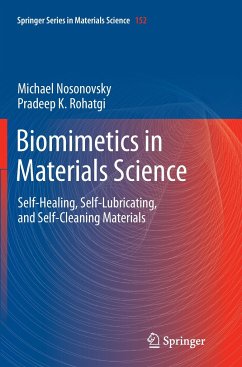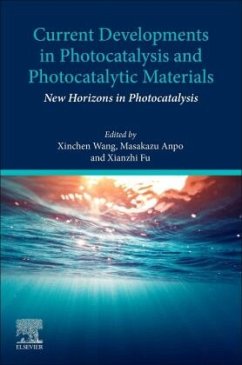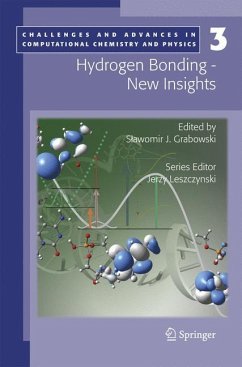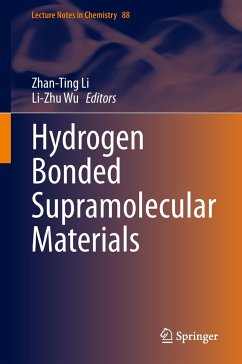
Hydrogen Bonded Supramolecular Materials

PAYBACK Punkte
19 °P sammeln!
This book is an up-to-date text covering topics in utilizing hydrogen bonding for constructing functional architectures and supramolecular materials. The first chapter addresses the control of photo-induced electron and energy transfer. The second chapter summarizes the formation of nano-porous materials. The following two chapters introduce self-assembled gels, many of which exhibit unique functions. Other chapters cover the advances in supramolecular liquid crystals and the versatility of hydrogen bonding in tuning/improving the properties and performance of materials.This book is designed t...
This book is an up-to-date text covering topics in utilizing hydrogen bonding for constructing functional architectures and supramolecular materials. The first chapter addresses the control of photo-induced electron and energy transfer. The second chapter summarizes the formation of nano-porous materials. The following two chapters introduce self-assembled gels, many of which exhibit unique functions. Other chapters cover the advances in supramolecular liquid crystals and the versatility of hydrogen bonding in tuning/improving the properties and performance of materials.
This book is designed to bring together in a single volume the most important and active fields of hydrogen bonding strategy for designing supramolecular materials. The book will be a valuable resource for graduates and researchers working in the fields of supramolecular chemistry and materials sciences.
Zhan-Ting Li, PhD, is a Professor of Organic Chemistry at the Department of Chemistry, Fudan University, China
Li-Zhu Wu, PhD, is a Professor of Organic Chemistry at the Technical Institute of Physics and Chemistry, Chinese Academy of Sciences, China
This book is designed to bring together in a single volume the most important and active fields of hydrogen bonding strategy for designing supramolecular materials. The book will be a valuable resource for graduates and researchers working in the fields of supramolecular chemistry and materials sciences.
Zhan-Ting Li, PhD, is a Professor of Organic Chemistry at the Department of Chemistry, Fudan University, China
Li-Zhu Wu, PhD, is a Professor of Organic Chemistry at the Technical Institute of Physics and Chemistry, Chinese Academy of Sciences, China





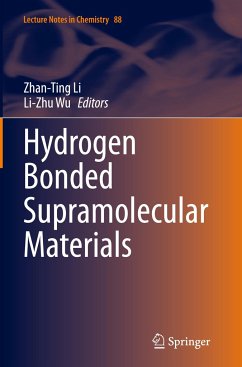
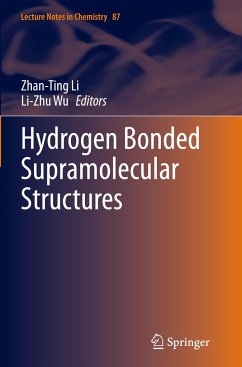
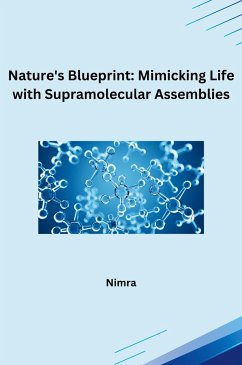
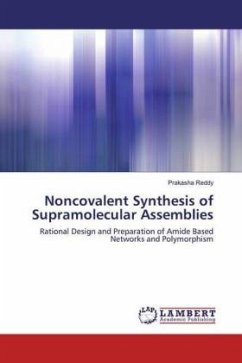

![Supramolecular Assemblies of Cucurbit[n]urils with Metal Ions Cover Supramolecular Assemblies of Cucurbit[n]urils with Metal Ions](https://bilder.buecher.de/produkte/42/42243/42243115n.jpg)

